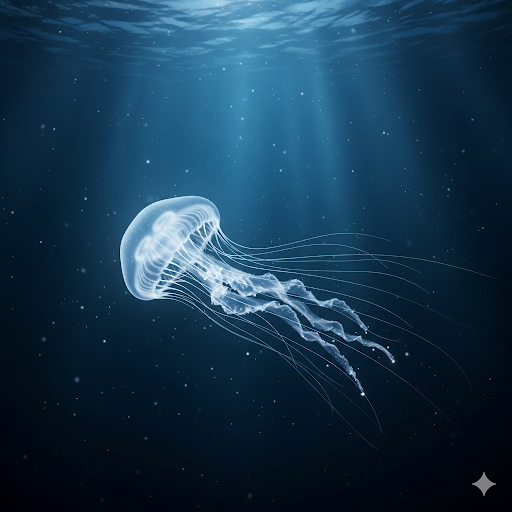The Vegan's Jellyfish Dilemma
Jellyfish are animals, so they're not a vegan food. Yet, the question of their consumption sparks a deep ethical debate among vegans.

For the uninitiated, the question "Are vegans allowed to eat jellyfish?" might seem bizarre, a head-scratching query with an obvious answer. Yet, this very question is a surprisingly popular topic of debate within vegan circles, highlighting the complex and nuanced philosophical underpinnings of the vegan lifestyle. To understand why this is a point of interest, we must first address why, despite their name, jellyfish are definitively not a vegan food source.
The most fundamental reason is simple: jellyfish are animals. Veganism, by its very definition, is a philosophy and way of living that seeks to exclude all forms of exploitation and cruelty to animals for food, clothing, or any other purpose. While the "fish" in "jellyfish" is a misnomer—they are not fish but rather invertebrates belonging to the phylum Cnidaria—they are unequivocally part of the animal kingdom. This fact alone makes them non-vegan. A person who consumes any animal, regardless of its species, is not a vegan.
However, the conversation doesn't end there, and this is where the question becomes more complex and intriguing for the vegan community. The core of the debate revolves around the concept of sentience. Many vegans are motivated by the desire to prevent suffering, and sentience—the ability to feel, perceive, and experience subjectivity—is central to this ethical framework. Jellyfish are fascinating in that they lack a centralized brain, heart, and a complex nervous system. They possess a diffuse "nerve net" that allows them to react to their environment, but it's not clear if this translates to a conscious experience or the ability to feel pain.
This biological ambiguity opens a philosophical can of worms. If a living creature cannot experience pain or suffering in a meaningful way, is it unethical to consume it? Some argue that from a purely utilitarian perspective, eating a non-sentient jellyfish is no different from eating a non-sentient plant, such as a mushroom or a head of lettuce. The harm done, they would contend, is functionally zero. This line of reasoning challenges the strict, taxonomic definition of veganism, which prohibits the consumption of all animals.
However, the majority of vegans reject this argument. One common counterpoint is the principle of "erring on the side of caution." With our current scientific understanding, we cannot definitively prove that jellyfish are not capable of some form of sentience or awareness we do not yet comprehend. To make an exception for them based on our limited knowledge is seen as a risky and potentially speciesist act. It could set a dangerous precedent, opening the door to justifying the consumption of other animals with "simple" nervous systems, like oysters or sponges.
Furthermore, veganism is not just about avoiding pain; it's also about opposing the commodification and exploitation of animals. Regardless of their capacity to feel pain, jellyfish are living beings with complex life cycles and roles in their ecosystems. Harvesting them for human consumption contributes to a system that views animals as resources to be exploited, an ideology that veganism fundamentally opposes.
In conclusion, while the answer to "Are vegans allowed to eat jellyfish?" is a resounding "no," the question itself is a valuable tool for exploring the philosophical depths of the vegan movement. It forces a conversation about the difference between a dietary choice and an ethical stance. It challenges vegans to articulate their principles beyond a simple list of prohibited foods and to confront the gray areas where science, ethics, and personal belief intersect. It's a question that highlights the profound commitment of many vegans to a world where the lives of all animals are respected, regardless of their perceived complexity or capacity for suffering.
Vegan Gently Blog
















